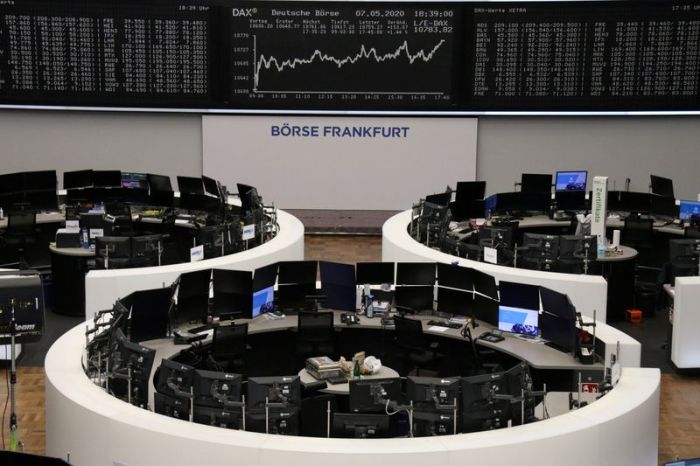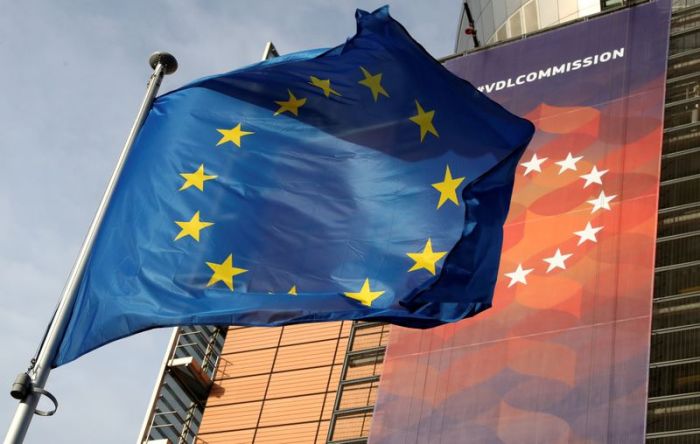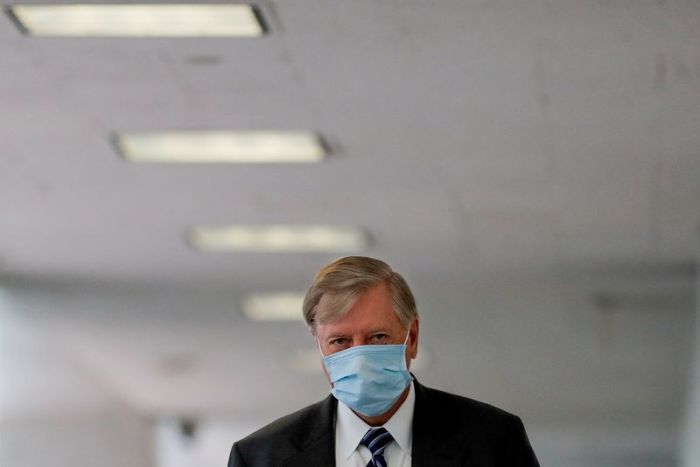BERLIN (Reuters) – Germany will act wisely in response to a court ruling targeting the European Central Bank’s flagship stimulus programme and use the decision as impetus to drive closer euro zone economic policy coordination, Chancellor Angela Merkel said on Wednesday.
Addressing German lawmakers, Merkel sought to defuse a growing political crisis that has blown up since the country’s Constitutional Court last week issued a ruling that threatened to hobble the ECB’s flagship bond-buying programme.
Her intervention came after a member of the court in Karlsruhe, in twin newspaper interviews, responded to a threat from Brussels of legal action against Germany over the ruling by saying any such a move would “weaken or endanger” the bloc.
The Karlsruhe court last week gave the ECB three months to justify bond buys under its flagship stimulus programme or lose the Bundesbank – Germany’s national central bank, and a member of the ECB – as a participant. It also called on the German parliament and government to challenge the ECB on the matter.
“It is up to me to respect the ruling,” Merkel said. “It is now about acting responsibly and wisely so that the euro can and should and will remain in existence, and so that the Bundesbank can also to take part in the ECB’s activities.”
She did not detail exactly how she would achieve that outcome but said the ruling “will have to motivate us to do more to push ahead with integration in the area of economic policy”.
“There must be more integration rather than less,” she added. “It cannot be that we say treaty changes are taboo.”
“EXPLOSIVE CHARGE”
The shock at the ruling is palpable in the corridors of power in Berlin as Karlsruhe’s three-month deadline runs down.
Officials are trying to work out a way of satisfying the court without eroding the independence of the ECB, which has kept the euro zone intact through a decade of crises.
One lawmaker described feeling like a bomb disposal expert, “because the Constitutional Court has put an explosive charge under the euro and the EU”.
Merkel told senior party officials on Monday that the situation was “solvable” if the ECB explains the plan, two participants at the meeting said.
Directly engaging with the German court decision would imply that the ECB accepts its jurisdiction, so the ECB will rely on the Bundesbank to address the case, sources close to the Governing Council have told Reuters.
In his newspaper interviews, Constitutional Court judge Peter Huber defended the ruling and responded to the possibility raised on Sunday by Ursula von der Leyen, the EU executive’s German president, of a lawsuit against Germany over the verdict.
Huber told the Frankfurter Allgemeine Zeitung that “an infringement procedure would cause a considerable escalation, which could plunge Germany and other member states into a constitutional conflict that is difficult to resolve”.
“In the long term, this would weaken or endanger the European Union,” Munich-born Huber, who has ties to Merkel’s conservative bloc, added. An infringement procedure “is by no means inevitable”, he said.
In a separate interview with the Sueddeutsche Zeitung, Huber said the ECB, which sets monetary policy for the 19 countries that use the euro currency, including Germany, should not see itself as a “Master of the Universe”.
Huber’s rare comments came a day after Friedrich Merz, a conservative candidate to succeed Merkel, also defended the court verdict in remarks that show Germany risks becoming more eurosceptic in the post-Merkel era.
Merkel has said she will not seek re-election next year and Merz, who has also dismissed the idea of debt jointly issued by euro zone members to counter the economic impact of the coronavirus, is trying to burnish his credentials.
(Additional reporting by Madeline Chambers, Michelle Martin and Andreas Rinke; Editing by Catherine Evans)

























